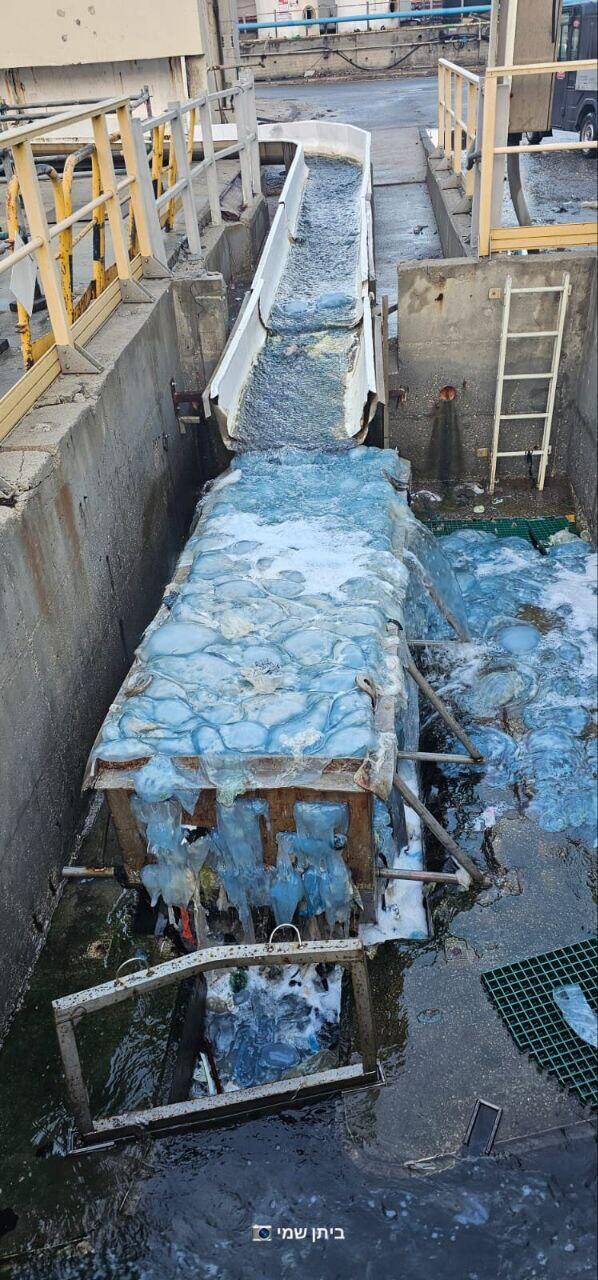Phenomenon typical during warm summer months, but rising Mediterranean Sea temperature is bringing jellyfish to the Israeli shores even in winter
Raanan Ben-Zur|. 01.09.24
A week after thousands of jellyfish clogged the Rutenberg Power Station near Ashkelon, Electric Company workers grappled with swarms of jellyfish at the filters of the Orot Rabin Power Station in Hadera on Monday.
This phenomenon is more typical during the warm summer months, but it appears that the Mediterranean Sea’s temperature, being several degrees above average, is bringing jellyfish to the Israeli shores even in winter.

(Photo: Israel Electric Company)
The national electricity provider said that the masses of marine life could disrupt the station’s production processes. “The jellyfish build up in the power station’s filters, which prevent them from entering the operational systems. They are then disposed of in designated containers,” the company’s statement read. “This allows the power stations to maintain regular electricity supply operations.”
The company further explained that coastal power stations use sea water to cool their production systems, which is how swarms of jellyfish end up there.

So why is this happening in winter? Dr. Uri Fried, a marine ecologist at the Nature and Parks Authority, explained last week, “It’s important to understand that these species have very significant population fluctuations that are hard for us to predict. Theoretically, we are accustomed to seeing jellyfish in the summer seasons, but due to disruptions like this and others related to sea temperatures, we suspect that climate change might be affecting the reproduction of jellyfish – they are here.”
Dr. Fried added, “Since we didn’t see jellyfish swarms in the summer, it could be due to excessively high temperatures or a different timing of these temperatures. This might have led to a change in the jellyfish’s reproductive cycle, resulting in their appearance at unusual times for us. At the same time, it’s worth noting that seeing jellyfish in winter isn’t unusual. Those who spend time at sea do see jellyfish. Usually, these are very large individuals and very small swarms.”
